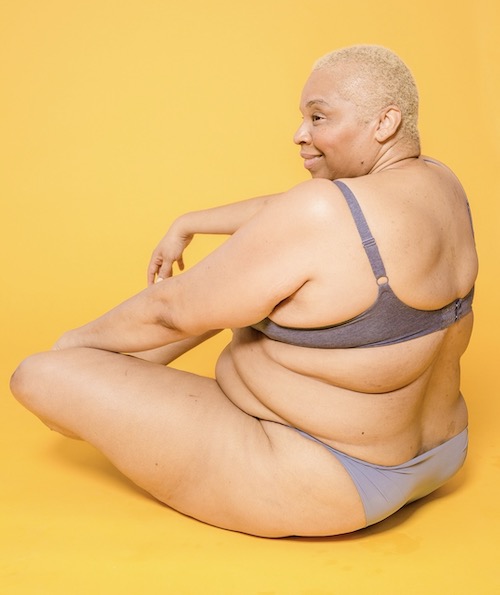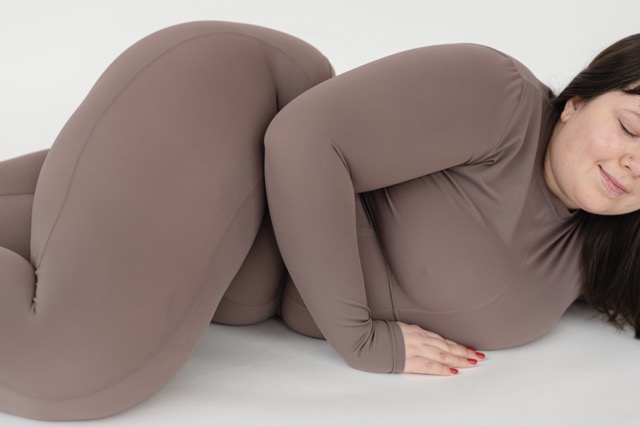Searching for some personal hygiene tips for plus size / obese women?
Then this post is for you.
For starters, personal hygiene is the practise of keeping the external body clean.
Sounds easy enough right?
However, obesity is known to cause reduced physical activities and personal hygiene is no exception to this.
The degree of limitation is related to how big a person is, and this is frequently defined by their body mass index (BMI).
That being said, I will show you how various routines and hacks, can make cleaning your body less of a chore and prevent un-necessary skin discomfort.
But wait, there is more.
Although this post is geared towards plus size individuals, I have included tips and information that is relevant to people of all sizes.
At the end, I discuss medical conditions that can occur from inappropriate hygiene practices, be sure to read to the end, so you don’t end up in these pitfalls.
Oh, as this is a post about PERSONAL hygiene, we will need to get very personal, so don’t be embarrassed! Let’s get to it…

Products and adaptations Hygiene Tips For Plus Size / Obese Women
Your bathroom and home should be organised in such a way that it is convenient and comfortable to carry out your personal hygiene routine.
That way you won’t put it off.
Below are a list of items and adaptations that will make things easier especially for plus size individuals.
1. Shower storage and organiser:
Organise your bathroom and shower items neatly in a basket or storage rack. Put them in the order that you will use, that way you won’t forget things, or have to dash out part way while washing. This can increase the risk of falls or result in an incomplete cleansing routine.
2. Shower with a detachable head
A detachable shower head will literally save you so much headache. The ease means you can direct water flow to wash and rinse hard to reach areas thoroughly. It will clean dirt and rinse as much soap residue off your body, especially in areas that are tucked away like in between skin folds. If using a bucket for shower have a large sized scooper to hand for the same purpose.
3. Long handled brush and sponges
Most people struggle to touch or scrub the middle of their back. This is more challenging for plus sized people. Make this job easier by investing in long handled body scrubs and sponges. This will allow washing in between back folds and down your legs if you struggle to bend. When choosing sponges, go for firm but not abrasive. As you don’t want to damage your skin there by disrupting its natural protective layer.
4. Immobile foot scrub
Dead skin can accumulate on soles of feet, so regular exfoliation is needed to replace these and rejuvenate tired feet. Bending to scrub feet can be impossible and increase risk of falls. So, use a hands-free foot scrubber, this can be in the form of a non-slip foot brush or a large sturdy exfoliating stone placed on the floor that you rub your feet against.
5. Sweat pads
Despite adequate washing, drying and use of deodorant, some people can still sweat a lot, especially if you live in a hot region. Things like bra liners can be a life saver to soak up extra sweat. Reusable ones, like bamboo based pads, are economical, highly absorbent, dry quickly after washing, and the planet will thank you for it ☺.
6. Toilet adaptations
There are two toilet adaptations that plus sized individuals will find helpful for personal hygiene reasons.
Firstly, a toilet extender can elevate the height of the toilet, preventing excessive pressure on the knees from having to sit low. Add a foot stool too to help achieve a good posture on the toilet.
This posture has been shown to facilitate better bowel emptying thus preventing constipation.
Secondly, stool left in contact with skin over time especially in combination with marked sweating and rubbing skin folds can cause inflammation, itching and skin breakdown. So, ensure that you wash your bottom after every bowel movement.
This can be done manually or with an installed automated bidet attachment (“butt flushers / washers”).
Have non-fragranced wet wipes to hand for a thorough clean if out and about, without access to washing facilities.
Hygiene routines For Plus Size / Obese Women
Perhaps you are someone that jumps into the shower, wash and get on with your day, without thinking much about it.
On the other hand, you may be confused with endless questions like how often should I shower? Should I use a hard sponge or my bare hands? What is the best moisturiser to use? e.t.c.
So, I will discuss common hygiene routines; why they are important and how best to carry them out
1. The act of washing:
The human skin forms a physical barrier to the outside world and therefore plays an important role in defending us from germs. Damage to it can cause disruption of this protective barrier, marked irritation and discomfort. Therefore, maintaining skin integrity is paramount to its protective function.
The ideal washing technique is one that removes dirt, oils, and bacteria whilst avoiding dryness or irritation to the skin. You will need to adapt processes to be able to strike this balance. For example, the way you clean the feet will be very different to sensitive areas like the vulva (the outer part of the private part).
It is generally agreed that we should shower at least once a day, and perhaps more if you have been physically active, sweat a lot, work / live in a dirty or dusty environment.
The type of soap used can affect skin integrity. Opt for mild soaps or even better you can use moisturisers as soap substitute, this replaces moisture into the skin thereby preventing dryness and strengthens the barrier function.
Soap residues may collect on the skin, and cause irritation even after rinsing. Plus seized individuals tend to have skin folds and crevasse that needs thorough washing and rinsing.
Use luke-warm instead of hot water to avoid dehydration to the skin. Avoid rough sponges as these can cause micro-abrasions and tears to the skin, thus disrupting the protective skin barrier and making it more prone to irritations and infections.
2. Drying the skin
Drying after showering is very important, especially in obese individuals with crevasses and skin folds. Inadequate drying will result in damp patches, these are fertile ground for bacterial and fungal overgrowth. Drying can be achieved by rubbing with a towel, patting with a towel, or blow drying with cool-warm air.
3. Moisturising; the bedrock of great skin care
Emollients are skin moisturisers that leave a barrier of oil on the skin surface. They nourish the skin, trap water, and therefore prevent dehydration and cracking. The degree of their occlusion or blocking depends on their water vs oil content.
Ointments like Vaseline have the least amount of water but the most amount of oil and therefore have greater skin occlusion.
Creams contain similar amounts of water and oil and are more easily rubbed and absorbed by the skin compared to ointments, making them more cosmetically acceptable.
The choice comes down to personal preference. Creams could be used in the day and ointments at night for ease.
All moisturisers are not made equally. Some contain harmful chemicals that can cause damage and irritations. Aqueous cream for example is perfect as a soap substitute to be washed off in the shower.
However, as a leave on moisturiser, it has been shown to cause irritation. So, speak to your doctor or beautician about what will work best for you. Choose natural products if possible. You may need to try a few to find the one that is best suited to your skin and needs.
4. Deodorants
Deodorants can stop sweating and reduce body odour that occur from the breakdown of sweat by bacteria. Plus sized individuals tend to sweat a lot and regularly using deodorants can help this issue.
Don’t just apply this under arms. Apply to other areas with close skin fold contacts, like under breast, belly skin folds etc.
Go for natural based products, you may need to try a few or discuss with your local beautician or pharmacist for options in your area.
5. Chafing relief
Chafing occurs when one skin is constantly rubbing against another or rubbing against a piece of clothing. As you can image this constant friction can be irritating and uncomfortable.
Plus sized individuals can experience this in-between thighs, underarms, in the groin e.t.c. Redness and rash can develop and if unattended can result in infections. Sweating as previously discussed can worsen this.
In essence, to prevent this the area must be kept clean, dry and a protective barrier should be maintained to reduce the constant friction that happens from repeated rubbing.
The barrier can be thick ointment-based products including natural ones like coconut oil and aloe vera gels. Chafing relief powder and gel are sold. Be aware that talcum powder can worsen skin irritation and promote infections.

Medical conditions that can occur or worsen with improper hygiene practices
Here are some of the most common conditions:
Bacterial Vaginosis (BV) and vulva care:
The human body including the private part possess a natural scent, this can be determined by pheromones. Trying to make the private part smell like the content of a perfume shop is simply asking for trouble.
Let me explain...
Just like the gut, the private part has lots of helpful bacteria. This keeps the private part slightly acidic and prevents the overgrowth of harmful bacteria.
Washing and applying chemicals can cause death of the helpful bacteria, thus making the private part less acidic. A condition called bacterial vaginosis (BV) can develop.
Women start to experience symptoms of infections. These symptoms might include an offensive and fishy smelling discharge, irritation, and abdominal pain.
To mask the smell, people wash a lot more, but this worsens the condition. Instead see your doctor for diagnosis and antibiotics.
The genital pH (acidity) can be altered by any foreign substance that is introduced into the private part, so avoid putting anything inside your private part unless prescribed by a doctor.
Do not douche either as the inner genital is self-cleansing. Instead focus on cleaning the other parts i.e. the vulva and surrounding skin.
Use a mild soap or a moisturiser as a soap substitute, wash with your bare hands then dry and moisturise effectively.
Candidiasis or thrush
Candidiasis or Thrush is a fungal infection. Fungal overgrowth and symptoms can occur in damp patches and crevasses. Like under breast, belly skin fold or any other skin fold.
Virginal thrush can also cause symptoms of irritations and soreness. It is important to keep the skin clean, dry and well moisturised.
Soreness caused by thrush creates the desire to scratch, which then causes further damage to the skin in a viscous, escalating cycle (the itch‐scratch cycle). Keep your nails short and clean to avoid worsening the damage and introducing infection.
The use of moisturisers is linked with reduction in skin dryness, itching and improvement in skin barrier function.
Ointments are best to provide a protective barrier. It is worth noting that ointments can weaken condoms and cause breakage. So, be mindful of your ointment application times if this is applicable.
Regardless of where thrush infection happens, specific anti-fungal treatment is needed. Get tested for diabetes if thrush symptoms frequently re-occur, or is difficult to treat, as this may be a sign of un-controlled blood sugar, which can occur because of obesity.
Folliculitis
Folliculitis aka boils commonly occur in hair growing areas of the body like the armpits and groin. It can be related to or worsen by inappropriate hair removal techniques.
Most do not need any specific treatment, but if severe antibiotics may be needed. Avoid hair removal techniques that damages the skin.
If your skin is already damage or irritated, hair removal should be delayed till healing has occurred, or hairs can be trimmed with a clean pair of scissors to the desired length.
Cellulitis
As discussed, inadequate washing, drying, and moisturising can damage skin integrity causing the loss of its protective effect.
As a result, germs that would normally sit on the skin surface can enter via the breached skin barrier and cause a skin infection called cellulitis.
The skin is normally red, hot, and painful. Antibiotics is normally needed for treatment. If you frequently get infection, you can use anti-septic creams as washes to help minimise this.
The bottom line
Good personal hygiene is essential to promote physical and mental well-being. Regardless of size, our hygiene needs and practices are largely the same.
However, plus sized individuals have certain differences that can form a challenge to their personal hygiene.
Yet, with various routines and adaptations, this can be managed effectively while continuing the journey to attain a healthier weight goal.



this has been one of the most imformative articles i have read. thankyou so much as i prepare for a summer as an obese woman. hopefully with your frank and new ideas i will have less suffering. thankyou